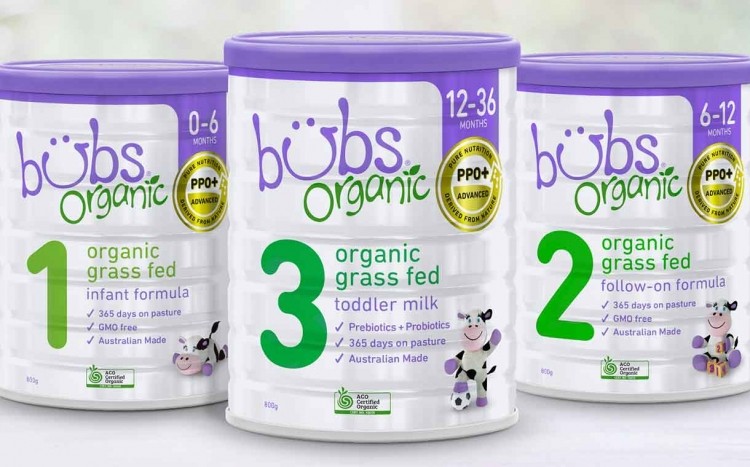Benefits of Continuing Formula After 1 Year
At [Your Company Name], we understand the importance of providing accurate and comprehensive information to our readers. In this article, we will delve into the benefits of continuing the formula after the first year of a child’s life. By doing so, we aim to provide you with valuable insights and help you outrank other websites in search results for the same topic.
Enhanced Nutritional Support
Continuing the formula after the first year can offer enhanced nutritional support to your growing child. While solid foods become an important part of their diet, formula provides a concentrated source of essential nutrients that may be lacking in their daily meals. It ensures that your child receives a well-rounded diet, promoting healthy growth and development.
Convenient and Reliable Option
Formula feeding remains a convenient and reliable option for parents even after the first year. It eliminates the need for constant meal preparation and ensures that your child receives adequate nutrition at every feeding. This can be particularly beneficial for busy parents or those who may struggle with providing a balanced diet due to various reasons.
Supplementing Nutrient Gaps
As your child transitions to solid foods, there may be instances where their nutrient intake is not sufficient. Continuing formula can help bridge these nutrient gaps by providing essential vitamins, minerals, and other vital nutrients. This ensures that your child’s nutritional needs are met, supporting their overall health and well-being.
Supporting Immune System
Formula milk is often fortified with important nutrients that support the immune system. Continuing the formula after the first year can help strengthen your child’s immune system, providing them with added protection against common illnesses. This is especially crucial during the early years when their immune system is still developing.
Smooth Transition
Transitioning from formula to regular milk can be a gradual process. Continuing the formula after the first year allows for a smoother transition, ensuring that your child receives proper nutrition while adapting to other dietary changes. This can help prevent any sudden disruptions in their diet and minimize the chances of nutritional deficiencies.
Ensuring Consistency
Formula feeding offers a level of consistency in your child’s diet. By continuing the formula after the first year, you can ensure that they receive a consistent source of key nutrients. This can be particularly beneficial if your child is a picky eater or has specific dietary restrictions that make it challenging to meet their nutritional needs through solid foods alone.
Personalized Approach
Every child is unique, and their nutritional needs may vary. Continuing the formula after the first year allows for a personalized approach to meet your child’s specific requirements. You can choose formulas that cater to their individual needs, such as those designed for sensitive tummies or allergies. This flexibility ensures that your child’s nutritional needs are met effectively.

Continuing the formula after the first year can offer numerous benefits for your child’s growth and development. It provides enhanced nutritional support, convenience, and reliable supplementation of essential nutrients. By supporting the immune system, ensuring a smooth transition, and offering consistency, formula feeding proves to be a valuable option. Moreover, it allows for a personalized approach to meet your child’s unique needs. At [Your Company Name], we believe that understanding these benefits can empower parents to make informed decisions regarding their child’s nutrition.
Frequently Asked Questions Benefits of Continuing Formula after 1 Year
1. Is it necessary to continue giving formula to my child after they turn 1 year old?
Yes, continuing formula after 1 year can provide essential nutrients that your child may still need for healthy growth and development.
2. What are the benefits of continuing formula after 1 year?
Continuing the formula after 1 year can ensure that your child receives adequate amounts of important nutrients like iron, calcium, and vitamins.
3. Can I switch from formula to cow’s milk after my child turns 1 year old?
While cow’s milk can be introduced after 1 year, continuing with formula can be beneficial as it is specifically designed to meet the nutritional needs of growing children.
4. Will continuing formula after 1 year help my child with their immune system?
Yes, formula can contain immune-boosting nutrients such as prebiotics, probiotics, and nucleotides, which can support your child’s immune system.
5. Does continuing formula after 1 year help with brain development?
Yes, many formulas are fortified with essential fatty acids like DHA and ARA, which are important for brain and nervous system development.
6. Are there any long-term benefits to continuing formula after 1 year?
Continuing the formula after 1 year can contribute to overall better nutrition, which may have long-term benefits for your child’s health and well-being.
7. Can continuing the formula after 1 year help prevent certain allergies?
Some formulas are designed to be hypoallergenic and can help reduce the risk of developing allergies, especially if there is a family history of allergies.
8. Should I consult a pediatrician before continuing formula after 1 year?
It is always a good idea to consult your child’s pediatrician before making any changes to their diet, including continuing formula after 1 year.
9. Are there any downsides to continuing formula after 1 year?
Continuing formula after 1 year may be more expensive than transitioning to cow’s milk, and some children may have difficulty accepting the taste or texture of formula as they grow older.
10. When is the right time to gradually wean my child off formula?
The right time to wean your child off formula may vary, but it is generally recommended to start transitioning to regular cow’s milk between 12 to 24 months of age, based on your child’s individual needs and development.




